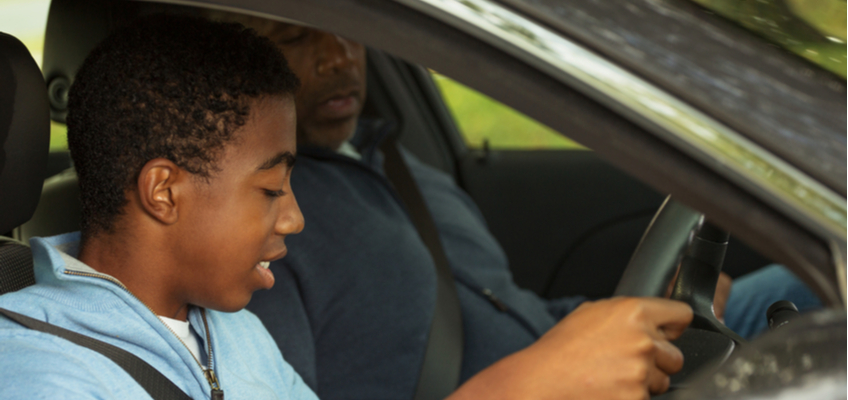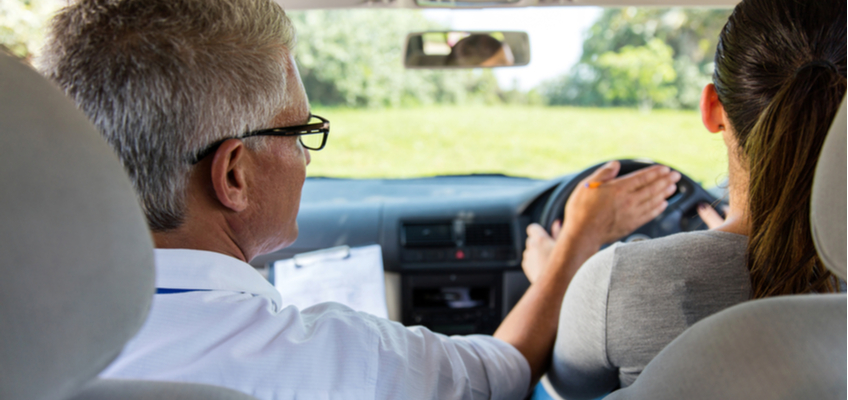Money Expert > Car Insurance > Can I supervise a learner driver?
Can I supervise a learner driver?
Last updated: 18/07/2024 | Estimated Reading Time: 6 minutes
Money Expert > Car Insurance > Can I supervise a learner driver?
Last updated: 18/07/2024 | Estimated Reading Time: 6 minutes
Learning to drive is a big step in anyone’s life, but it can be very challenging, with most learners needing well over forty hours to successfully pass their test.
If you already have your driving licence, you might be wondering whether you can help a friend or family member get in a bit of practice between lessons. It’s a great thing to do, but before you set off, do you know what’s involved? And is it even legal?

So you’ve either kindly offered or begrudgingly agreed to help someone learn to drive. The first thing you need to do is make sure you meet the legal requirements:
It’s important to note that while the legal minimum age to supervise a learner driver is 21, many insurance companies will not provide learner insurance, or allow the learner to be added to a policy, unless the supervisor is 25, or in some cases 26.
Beyond the legal requirements, you should also ask yourself whether you feel up to teaching someone to drive. It’s a serious undertaking, and requires huge amounts of patience. If you don’t feel comfortable, then don’t be afraid to say so, as you could put both yourself and the learner at risk.
Once you’ve established your suitability, there are a few things you will have to bear in mind.
The first of these is that under no circumstances are you allowed to look at your phone while supervising. As you are technically in control of the vehicle, it’s imperative that you remain aware of your driver and the surroundings at all times.
Secondly, you cannot take them on the motorway as this can only be done by a qualified instructor.
Finally, while we’re sure that you wouldn't dream of it, it’s also illegal to take money from a learner in exchange for your supervision, or drink alcohol while giving a lesson.

Before setting off with the learner driver you’re supervising, there a few things you should do to best prepare yourself beforehand:
The first thing to do will be to brush up on the highway code. If you’ve been driving for some time, the rules of the road might be second nature to you, but recalling and teaching are unlikely to be as simple.
Since you’re bestowing your wisdom upon someone else, it’s vital you get this right. Failure to do so could risk them failing their test, or penalties for both you and the learner.
Any points that your students get on their provisional licence will carry over when they pass. With young driver insurance as expensive as it is, you’ll be doing them a massive favour by understanding the rules yourself.
While you can do this off your own back, many opt for driver assessment or refresher courses, just to ensure that they are going to be teaching in the right manner.
Next, you will want to work out a safe and easy route for your student. When you're planning for the first few lessons, try and opt for areas and times that have low traffic and easy to navigate roads.
As the learner progresses in competency, you will want to expand the locations you visit to teach them in a wider range of situations. They’re unlikely to pass their test from driving up and down your road after all.
To maximise efficiency, you will want to keep in touch with the official driving instructor to make sure you’re not wasting everyone's time. The whole process will feel rather futile if you’ve lined up a whole lesson on parallel parking, only to discover it’s already been covered.
The type of insurance that is required depends on whether you will be using your own car or the learner’s vehicle.
If it’s your own vehicle then you should be able to include them on your policy. Not every insurance company will offer this product though, so it’s worth checking this before you offer yourself up as a supervisor.
Should your insurance company not be willing to play ball, or the learner is going to drive in their car, then they will need to take out separate learner insurance. These are generally more expensive than adding a driver, but, as they are standalone policies, will not affect the drivers no claims should they be using another vehicle.
Before starting your lessons, it’s absolutely vital that you make sure that both you and the learner are appropriately covered. Failure to do so can result in a fine and points on your licence for both parties.